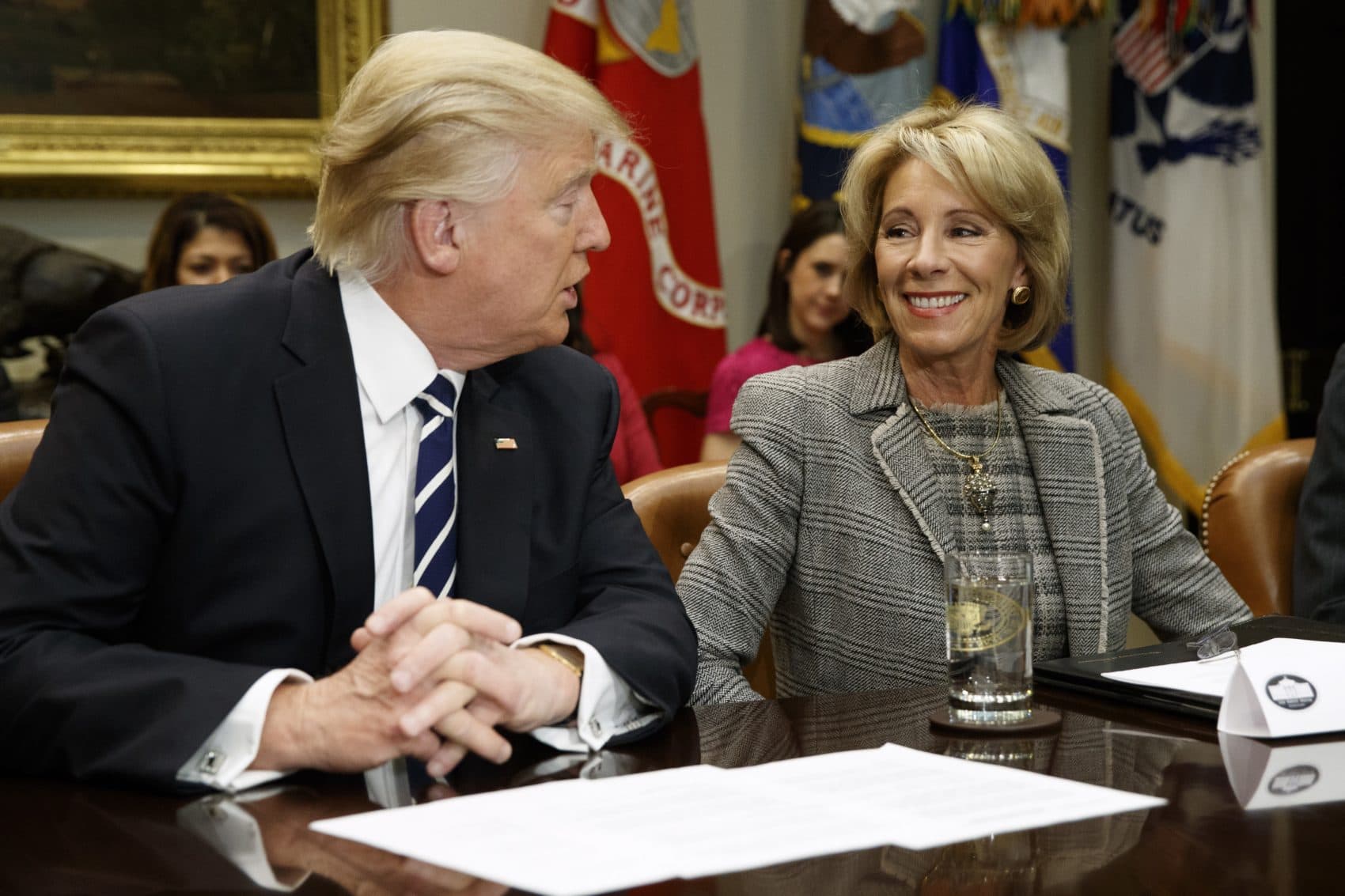Advertisement
COMMENTARY
Open Schools, Closed Minds: The Progressive Bias Against Charter Schools

Opposition to charter schools is to the left what climate change denial is to the right, a fortress of unreason that shields ideology from contrary evidence. Everywhere, including in Massachusetts, home to some of the nation’s best charters, anti-charter zealots always, always have a “yes, but --” response for every study suggesting disadvantaged students benefit from these schools.
Charters are public schools, minus certain regulations and union rules. Yes, but they bleed money from cash-starved traditional schools. Actually, in Massachusetts, charters educate 4 percent of public school students and get 4 percent of public school funding. Yes, but they select only top students and weed out the bad apples. When The New York Times’s David Leonhardt put a fork in that turkey, pointing out that many charters take students via lottery, one reader responded yes, but they’re still selective, since charter students’ parents are proactive enough to enter the lottery. (Yes, and some parents are proactive enough to make their kids eat right and exercise, but no one grouses about vegetable farms or playgrounds.)
The mirror image of these critics on the pro-charter side is Education Secretary Betsy DeVos, a school choice fanatic who supports not just charter schools but also the more dubious strategy of vouchers. Two new studies throw a wrench into the worldviews of zanies in both camps. Massachusetts lawmakers, who are considering a bill to make some schools more charter-like, should pay heed.
Opposition to charter schools is to the left what climate change denial is to the right, a fortress of unreason that shields ideology from contrary evidence.
The study prompting Leonhardt’s column, conducted by the department DeVos heads, examined Washington, D.C.’s voucher program one year after students entered it. The results were underwhelming. Math scores were notably lower compared to non-voucher users; in reading, voucher students under-performed their peers, too, though not to a statistically significant degree. Nor did vouchers do much to increase parents’ involvement in their children’s education. The only positive was that parents of voucher students were more likely to consider their schools safe than non-voucher parents.
But here’s the thing, Leonhardt writes:
“The voucher results look so weak — even worse than elsewhere — partly because the city’s charters are so strong. That is, voucher recipients are being compared with children at higher-performing public schools than in the past, and the voucher schools aren’t keeping up. It’s an argument for a political compromise: fewer vouchers, more charters.”
The second study, by researchers from Tulane and New York University, touched on two fraught issues, charters and race. It probed the effects on school segregation of New Orleans’s decision to become a real-life laboratory for charter schools. Eighty-six percent of city children attend charters, and every city school takes students from anywhere in the city, “the only all-choice school system in the country,” according to the researchers.
They found that, contrary to DeVos’s insistence that school choice can integrate schools, New Orleans hasn’t seen that effect. But neither did citywide choice cause “large, consistent” spikes in segregation, they wrote. Studies elsewhere have found increased segregation in some charter schools — parents prefer sending their children to schools with kids who look like them.
But if research on segregation and charters is mixed, the authors of the New Orleans study note that there’s a solid consensus that charters dramatically improved education in that city.
And not just there: Leonhardt unspools a lengthy list of academic studies of places with similar results, from New York to Denver, Florida to Texas, and, as we’ve noted, D.C. and Boston.

I can hear another yes, but: Some charters are bad. Yup, they are; DeVos’s home state of Michigan is hardly the poster child for successful charter schools. Some traditional public schools are crummy, too. But rather than declare war on them, progressives call for pumping more money into them. Overall, Leonhardt summarizes the evidence: “The anecdotes about failed charters are real, but they’re not the norm.”
In Massachusetts, where voters killed a proposed charter expansion last November, a bill to help low-performing schools with a charter-like strategy is pending before state lawmakers. Rep. Alice Peisch (D-Wellesley) chair of the Joint Education Committee, has proposed Innovation Partnership Zones for some schools in the bottom fifth of the state in terms of performance. Schools in these zones would get greater say over their money and management in the hopes of improving. Various constituent groups would have representatives on the boards overseeing zones.
Such so-called school based management (SBM), done smartly, has been used at many successful parochial and traditional public schools. But it’s a hallmark of charter schools, which one expert called “SBM on steroids.” Peisch expects the House Education Committee to hear her bill sometime in the next few months.
Let’s hope her Beacon Hill colleagues will weigh the evidence honestly. We already have too many officials in Washington, and citizens, who aren’t in the habit.
